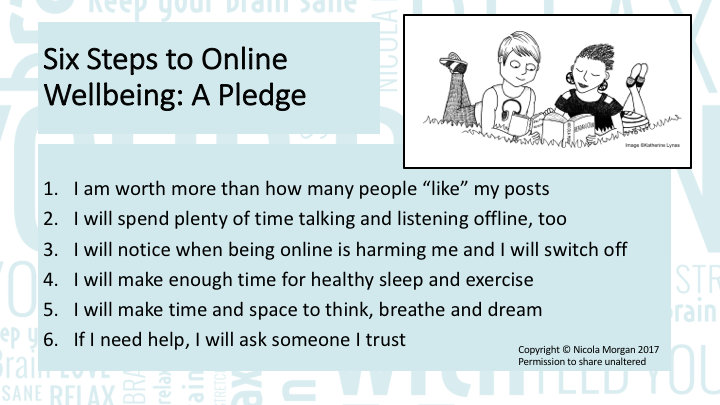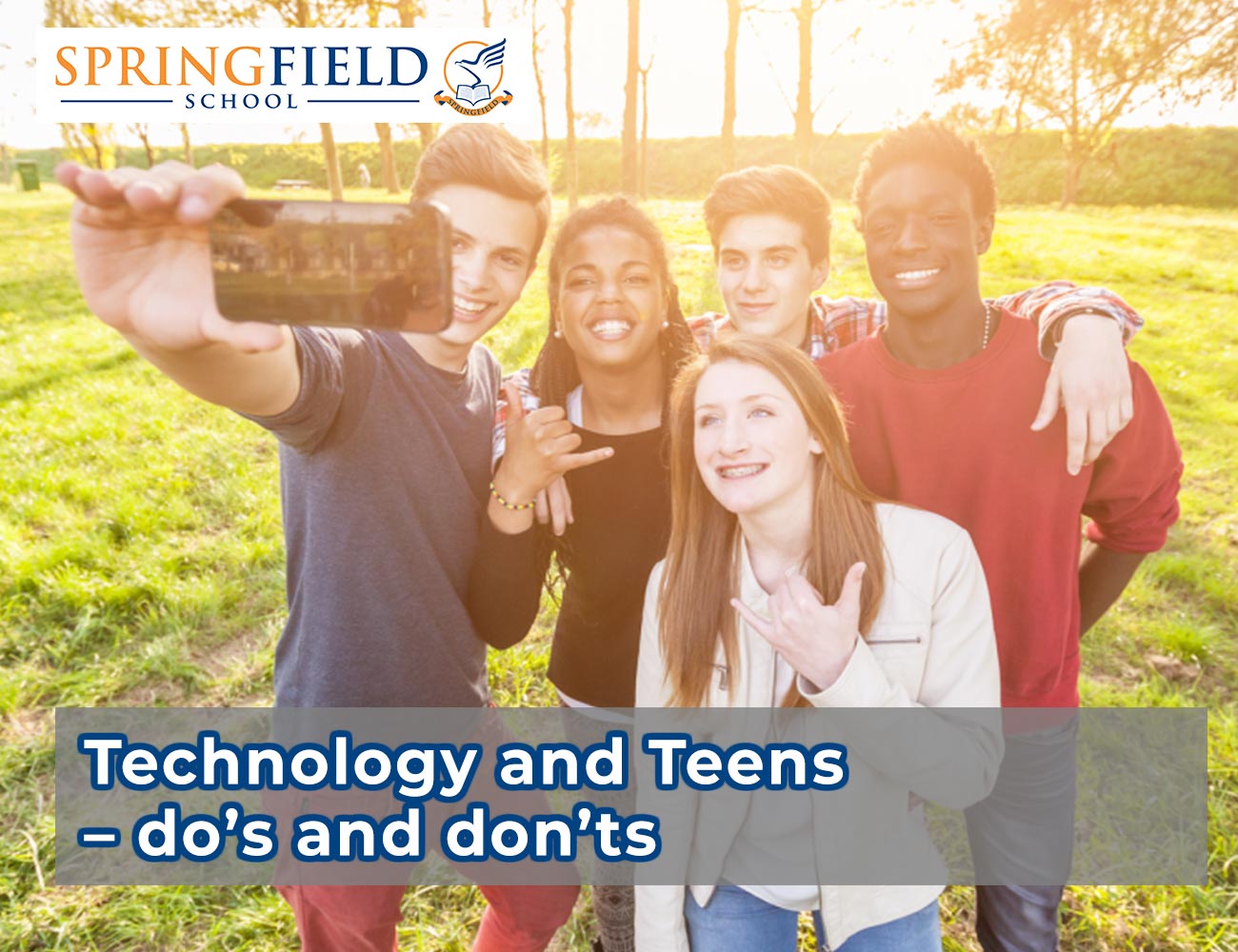Technology and Teens – do’s and don’ts
Screens – whether phones, tablets or laptops, and whether used to increase knowledge, do homework, play games or socialise – brings enormous benefits and opportunities, inside and outside schools. They also bring risks. Not just the obvious safety risks but also risks to concentration, self-esteem and both physical and mental health. Not to mention sleep.
As teachers, we need properly to understand both the opportunities and the possible problems, so that we can ensure that screen technology is used to best effect in schools, while also building good behaviour in students. This is so that they can use technology profitably and healthily in school and outside, and so that they can grow self-control and ultimately be in charge of their own behaviours.
The benefits of screens, online and offline, are huge, including information-gathering; wider and easier social opportunities; learning new skills; entertainment; creativity. Note that research into problems from over-use of social media also flags problems from not being engaged online.
Possible negatives from screen use
Note: these are not inevitable – indeed, all are avoidable once we know them and take sensible steps. But they are all relevant to teachers as they all have the potential to harm learning and performance at school:
Note: these are not inevitable – indeed, all are avoidable once we know them and take sensible steps. But they are all relevant to teachers as they all have the potential to harm learning and performance at school:
- Distraction, poor concentration and fractured brain bandwidth
- The “online disinhibition effect” making people less careful and kind than when face-to-face or on the phone
- Self-image, self-esteem, body image, competition, unrealistic goals of perfection
- Dependency and possible addiction through over-stimulation of reward systems and not enough motivation to regulate
- Loss of conversation skills and practice
- Less physical exercise and face-to-face communication (important for health)
- False information
- Lower wellbeing
- Less/worse sleep
- Lack of time to breathe, think and dream
Good strategies for avoiding the negatives
General points for adults
Note: these are not inevitable – indeed, all are avoidable once we know them and take sensible steps. But they are all relevant to teachers as they all have the potential to harm learning and performance at school:
DO:
- Understand the addictive nature of screen technology, which taps into things we are biologically wired to be: social, curious and distracted. It’s very easy to over-use and simply saying “don’t do it” is no more helpful that telling someone who loves chocolate not to eat it.
- Realise that although you can make rules, self-control is the aim. Of course, in schools there must be rules, but those rules should aim to grow self-control. For that, students need to know why they should control their use and they need an environment where that is easier.
- Remember that they learn by example, so adults need to follow the same rules. If students must have phones out of sight and sound in class, so should teachers.
Guidelines for schools
DO:
- Encourage students to close all device windows/apps except the one they are actually using. Explain that multi-tasking is ineffective and tiring and that “uni-tasking”, focusing on one thing at a time, is best for concentration.
- When screens aren’t being used, they should be completely out of sight. The presence of a screen, even someone else’s, lowers performance.
- Facilitate some Switch Off Screen time every day. Take opportunities for a whole-class switch off.
- Teach “pause before posting”; not to post when emotional; think how you’ll feel tomorrow.
- Encourage students to notice how they feel – if self-esteem is suffering from people’s online behaviour, switch off, walk away and do something else.
- You may not have control over the time-table, but do what you can to help students have enough of the following: physical exercise and fresh air; face-to-face communication; non-screen relaxation and hobbies; engaged reading; sleep; time to do nothing.
- Educate how to get the best sleep possible, including not having screens in bedrooms less than 1.5 hours from bed-time.

Finally, DON’T think that digital natives are born with different brains! We wire our brains by how we spend our time. I’ve spent more hours online than digital natives – I’ve been doing it since before most of them were born and so have you! We are in this together, experiencing positives and negatives of all we do online, learning the risks, how it makes us feel, and discovering good strategies of self-control. Let’s share what we’re learning.
If we are clear-headed about this, we can make life online work well and young people can access the huge educational and social benefits of screens. We need to set guidelines based on strong science and psychology, rather than emotion, that will allow students to grow self-control and good habits to carry to the next stage of their lives.
Technology needs to be our tool not our tyrant – and that applies to students and to us.
Source : https://www.cambridge.org/elt/blog/2018/09/20/technology-teens-dos-donts/
Tags:Term-1 2019-2020



